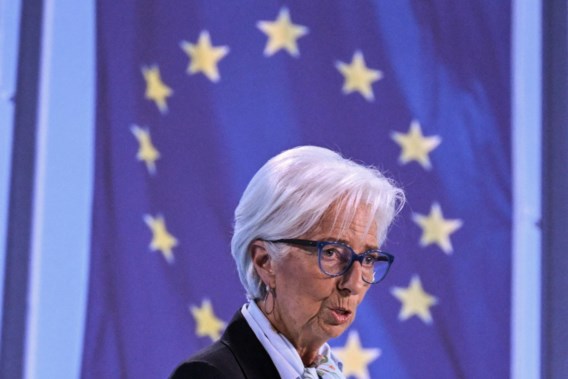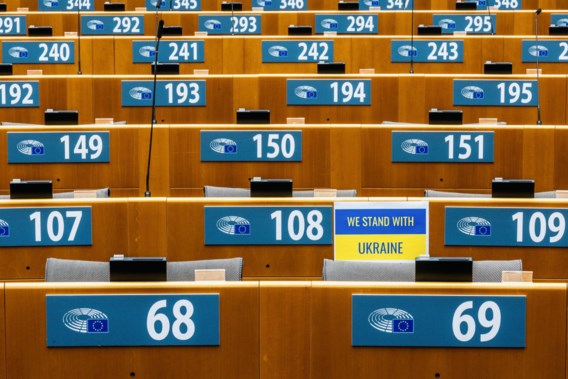It is not a competition, but the world is still watching with anticipation to see which of the two leading central banks will cut interest rates first: the ECB or the Federal Reserve. Until recently, many analysts assumed that both were targeting June for the historic moment. The ECB governors will meet on June 6, the Fed bankers on June 11 and 12.
But in recent days, doubts have arisen about the timing on the American side. Inflation figures appear to be declining less quickly than expected. A figure published on Wednesday actually rose on a monthly basis. On an annual basis, inflation remained unchanged at 3.5 percent. That is much more than in the eurozone, where a figure of 2.4 percent was recorded in March. The markets reacted with shock on Wednesday to the persistent inflation. Investors took into account that American interest rates will remain high for longer than expected.
Lagarde indicated on Thursday that the ECB will most likely take the step in June. “If our confidence in falling inflation is confirmed, it will be appropriate to make monetary policy less restrictive,” she said. That’s banker’s language for: “Unless really crazy things happen, interest rates will go down soon.”
If the ECB cuts interest rates in June, but the Federal Reserve does not yet, an undesirable situation may arise in the euro zone. Due to the interest rate differences, the euro will drop in value against the dollar. That is difficult for the ECB, because a low euro exchange rate makes imported oil and gas more expensive, which drives up inflation. In this way, inflation might rise instead of fall. Then the ECB may partially undo its hard-fought victory over the inflation monster. “There is no reason why the ECB cannot be the first to cut, but in the long term there are limits to the extent to which European interest rate policy can deviate from the American one,” Deutsche Bank pointed out.
Christine Lagarde showed that she was aware of the problem. “Our policy is based on the data we collect. These are of course mainly European data, but things that happen elsewhere in the world can also be important to us. The US is an important market and home to an important financial center.”
At the same time, Lagarde emphasized that the euro exchange rate itself does not play a direct role in monetary policy. The ECB’s main objective is to combat inflation. “But everything we monitor is translated into our projections.”
Due to energy prices, inflation could soon rise slightly again in the euro zone, Lagarde said. This has to do with so-called basic effects. Last year the gas price fell very sharply. The basis against which the current price is compared is therefore already very low. It is not inconceivable that the price this year is sometimes slightly higher than 12 months earlier. “We are on track to 2 percent inflation, but there may be some bumps in the road here and there.”
In ‘The Great Market’, the economics editors delve daily into a remarkable movement in the economic world.


